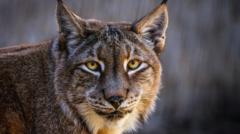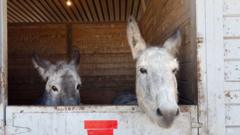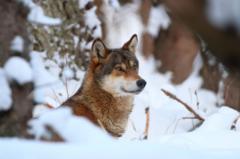In an Instagram post, the zoo emphasizes its duty to replicate the natural food chain, stating that smaller livestock significantly contributes to the diets of their carnivores. This effort is particularly crucial for animals like the Eurasian lynx. Other predators at the zoo include tigers and lions. Pets can be donated on weekdays, with a limit of four animals at a time without needing an appointment.
The conditions for horse donations require the animals to possess a horse passport and to have not been treated for illness in the previous month. Pia Nielsen, the zoo's deputy director, highlighted the long-standing practice of feeding smaller livestock to carnivores, explaining that it is vital to provide them with as natural a diet as possible, which includes meat, fur, and bones.
Therefore, enabling the use of animals that need to be euthanised aligns with both animal welfare standards and the dietary needs of the zoo's inhabitants. Nielsen noted that many patrons of the zoo appreciate the chance to contribute in this way, and the concept of donating livestock for animal nutrition is common practice in Denmark.
This innovative approach by Aalborg Zoo raises discussions about ethical sourcing of food for zoo animals, mirrored by recent controversies in other zoos, including a boycott by Born Free over great ape welfare and an incident in Germany involving culling baboons due to overcrowding concerns.
The conditions for horse donations require the animals to possess a horse passport and to have not been treated for illness in the previous month. Pia Nielsen, the zoo's deputy director, highlighted the long-standing practice of feeding smaller livestock to carnivores, explaining that it is vital to provide them with as natural a diet as possible, which includes meat, fur, and bones.
Therefore, enabling the use of animals that need to be euthanised aligns with both animal welfare standards and the dietary needs of the zoo's inhabitants. Nielsen noted that many patrons of the zoo appreciate the chance to contribute in this way, and the concept of donating livestock for animal nutrition is common practice in Denmark.
This innovative approach by Aalborg Zoo raises discussions about ethical sourcing of food for zoo animals, mirrored by recent controversies in other zoos, including a boycott by Born Free over great ape welfare and an incident in Germany involving culling baboons due to overcrowding concerns.





















